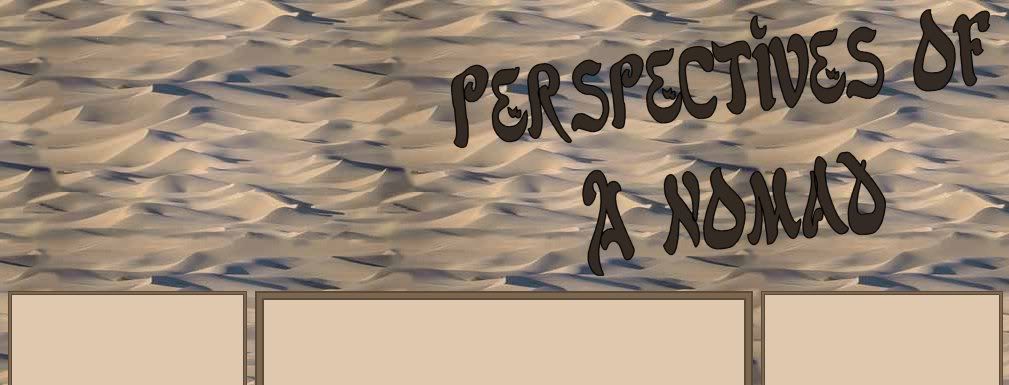Sunday, September 24, 2006
Some Promise for the Future, or Precursors to Doom?

For those of you who don’t know, today is Rosh Hashanah, the Jewish New Year. It’s a time to reflect on the year just ended, and the future. It is unquestionably a scary time, a time with great dangers around every corner. But it also may be a time with great promise, for the Jewish people, Israel, and the world at large.
I have a strong belief, which I have discussed here in the past, that we are coming to a cross roads, that we are coming to a better tomorrow, but that we have to move through a lot of strife and hardship to get there. Certain speeches surrounding the UN General Assembly led to hope along this front. But the question, the ultimate question, is do I believe these speeches.
For example, I have always felt disdain for Venezuelan President Hugo Chavez. I was encouraged, however, by his plan to provide low-cost heating fuel to lower-income Americans in 17 states, upping the export of low-cost heating oil from 40 million gallons to 100 million gallons. And I love his reason: while Chavez has made no bones about his issues with Bush, he says the American people “are our friends”. "We're sharing the bread to try to live a bit better, with solidarity."
I have read Chavez’ statements, and have always been unimpressed, to say the least. But so many times I’ve seen the biased media alter the statements of public officials, perhaps Chavez is correct in his assertion that the Bush administration has tried to villainize him as he has done so many opponents. I would not put it past this administration. It all comes down, I suspect, to who do you trust?
On Thursday, Saudi Foreign Minister Prince Saud al-Faisal spoke of a consensus among the Arab countries to restart the Middle East peace process. Faisal spoke for a 15 member Arabic council, and indicates a clear break between the consensus of the majority of Arabic countries and the most radical governments in the region. Perhaps most surprising, Iran and Venezuela, along with Cuba, Indonesia, and Malaysia have indicated a desire to co-sponsor the resolution.
"We have found for the first time probably a consensus that is very significant about the need for restarting the peace process.” He said the Arab countries wish for a revived peace process that would "concentrate on the important issues, rather than the process itself. In other words, the final status negotiations, the border, Jerusalem, Palestinian rights and so on."
Once again, it leads to one question, one very basic question: do I trust the coalition? Do you? Do we really believe that the Arabic countries are ready to seek out peace with Israel? Maybe Faisal is honest when he indicates that the issues have always existed with the Israeli government, and never with the Israeli people. It falls in perfectly with my belief that the governments are dividing the Jewish and Muslim people. But is it really true?
Readers of this blog know that I practically froth at the mouth at the mere mention of Iranian president Mahmoud Ahmadinejad. I fear there is no more dangerous person in the world today. But some of the words he said on Tuesday struck a chord that resonated within me. Could it be that the media has painted an erroneous picture of the Iranian leader?
“The U.S. government thinks that it’s still the period after World War II,” Ahmadinejad said in an interview with Brian Williams, anchor and managing editor of “NBC Nightly News,” a mindset that led Bush to believe that he “can rule, therefore, over the rest of the world.” But “the world has changed,” he said. “Nations are awakened now. They want their rights — equal rights, and fair ones. The time for world empires has ended.”
At least when it comes to Ahmadinejad, I feel confident that this is not a leader that we can trust, that he will use words whenever possible to effect an outcome that serves his interests. But what about the other leaders mentioned here?
Certainly the strife I spoke of earlier may be just around the corner. I believe that the protest against the Pope’s recent comments, referring to Islam as a violent religion, will be the first of many comments. In fact, don’t be surprised if these protests dwarf the Mohammed Cartoon protests. And the Hezbollah victory rally may be the harbinger of a new empowerment for radical groups in the region.
However, I do believe that we are at a crossroads today, and that we are moving closer to a situation where the people of the world will begin to work together towards a brighter tomorrow. I also believe that some leaders will emerge that will help guide us towards these ends. But are these the leaders?
Are leaders like Chavez, Ahmadinejad and Faisal simply exploiting a future many people see to take advantage of the evolving society, and creating the hardships that jeapordize this future? Again, the question that has to arise is who do you trust? I don’t have the answer, but I think these are important questions!
technorati tags: Hashanah, New, Jew, Israel, UN, Chavez, Venezuela, Faisal, Jerusalem, Palestine, Ahmadinejad, Iran, Pope, Hezbollah
Posted by Scottage at 2:14 AM /
| |




